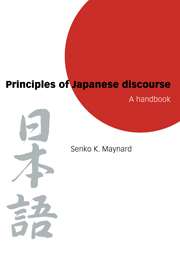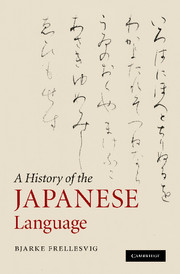Principles of Japanese Discourse
Principles of Japanese Discourse offers the first detailed description in English of the structure and rhetorical effects observed in various genres of Japanese discourse. Drawing on Japanese bunshooron and incorporating results of Western discourse studies, the book covers principles of overall rhetorical organisation including ki-shoo-ten-ketsu, topic structure, danraku, and sentence chaining, and presents a variety of rhetorical strategies frequently used in contemporary Japanese texts. After presenting these principles in thirty compact entries, Professor Maynard invites the reader to apply the knowledge gained to the comprehension of contemporary authentic Japanese text. Seven selected readings are presented with vocabulary lists, discourse notes, and other tasks. Translations are provided in the appendix. In this book Professor Maynard has created a new category in the area of Japanese language learning and provided an excellent reference source not only for students but for instructors of the Japanese language worldwide.
- First book on Japanese rhetorical style and strategy for English readers
- Presents clear explanation of Japanese discourse organisation and detailed analysis of the rhetorical strategies in thirty compact entries
- Includes seven pieces of selected reading with translations, vocabulary lists, discourse notes and other tasks
Product details
March 1998Hardback
9780521590952
320 pages
236 × 157 × 26 mm
0.62kg
17 tables
Available
Table of Contents
- Preface
- Introduction
- To the instructors
- Part I. Preliminaries:
- 1. Beyond the sentence: discourse and bunshoo
- 2. Rhetoric and culture
- 3. Written, spoken and in-between
- 4. Style distinction: da, desu/masu and dearu
- Part II. Principles:
- 5. Rhetorical organization
- 6. Rhetorical strategies
- Part III. Selected Readings:
- 7. Prelude: on reading different genres of contemporary Japanese texts
- 8. Reading Japanese texts
- 9-15. R1-R7
- Appendix
- References
- Index.








